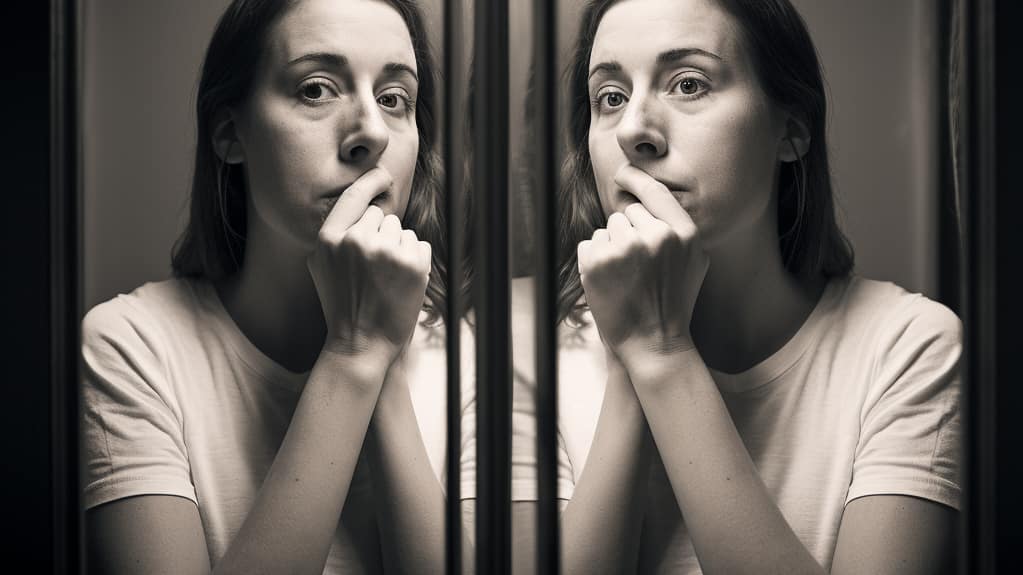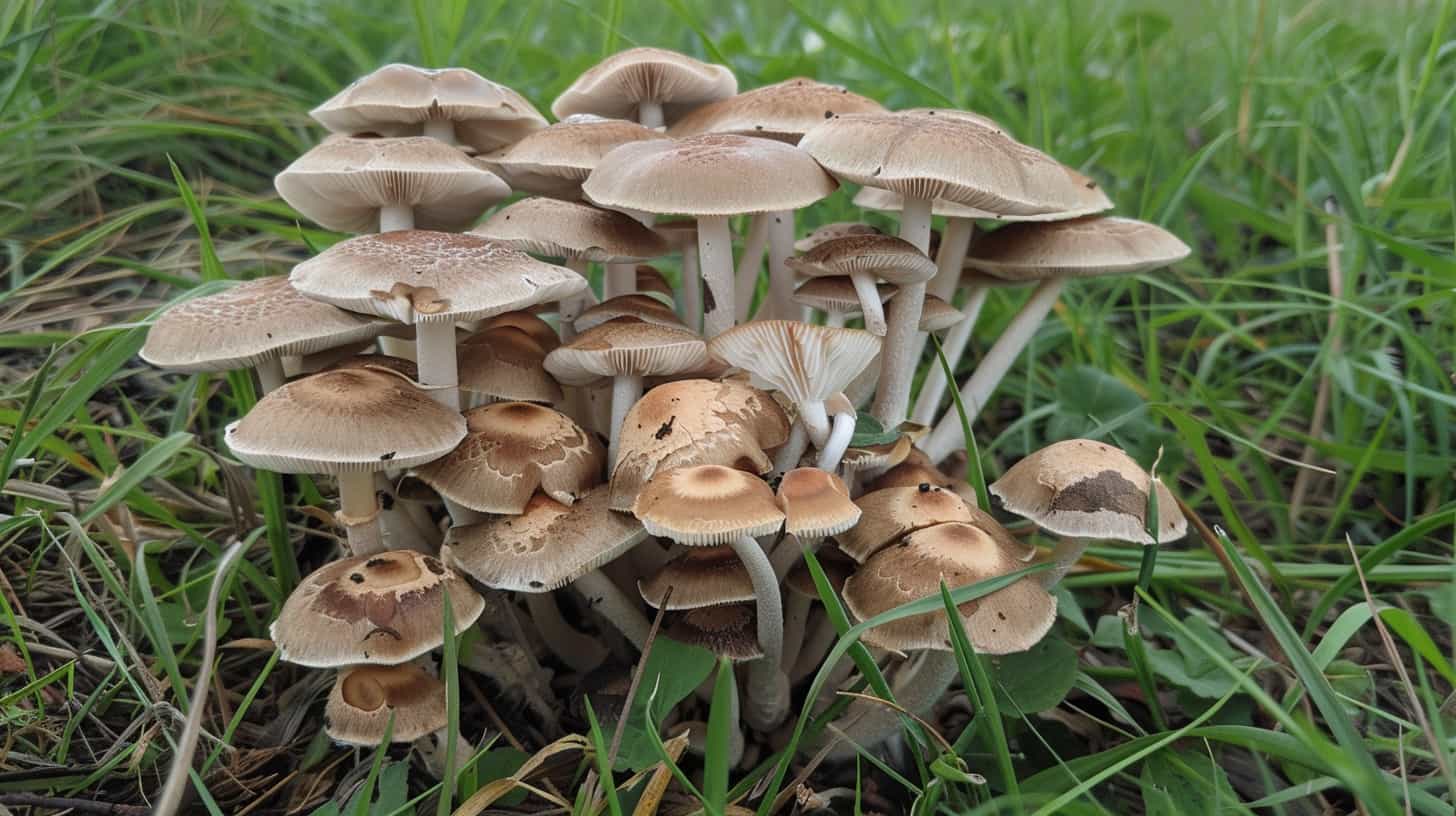The key to the effects of shrooms (magic mushrooms or others) is the psychoactive compounds psilocybin and psilocin. You can go ahead and forget those words if you want. Because when asking, “what are shrooms?” the important thing to understand is what they do.
When fungi has these compounds, and you consume said fungi, then you could experience hallucinogenic stuff—an altered perception, changed mood, and thought process.
There are over 180 species of mushrooms that produce psilocybin, with Psilocybe cubensis (Magic Mushrooms) being one of the most well-known.
What Are Shrooms: A Brief History
Taking shrooms for their effects isn’t exactly new. The have been used for thousands of years. Ancient Aztec and Mayan civilizations called them “teonanácatl,” meaning “god’s flesh.” They used them in religious ceremonies to get a connection to their gods and get some non-human insights.
In America, the ’60s brought them back. The counterculture movement was looking for broader experiences to their stodgy roots, and shrooms became an option for some people to get a new perspective.
The Effects of Shrooms
People consume shrooms pretty much any way they want. Eat them. Cook them with food. Dry them out and make a tea out of them. You can even find capsules of shrooms.
And they do it for one or many of these effects of shrooms:
- Euphoria and a sense of well-being
- Altered perception of time and space
- Visual and auditory hallucinations
- Heightened sensory perception
- Introspective and philosophical thoughts
The effects can last anywhere from 4 to 6 hours, depending on the dose, the user’s metabolism, and other factors.

The Dangers of Shrooms
Generally speaking, it’s not a great idea to go around picking up mushrooms and having a snack. Many mushrooms are poisonous and can cause lots of hurt. But even if you track down the right ones, the experience is wildly unregulated (this should be slightly obvious) and can be downright dangerous outside of its consumeability.
- Bad Trips: Negative experiences can lead to severe anxiety, paranoia, and frightening hallucinations.
- Psychological Effects: There is a risk of triggering or exacerbating mental health issues, such as schizophrenia or bipolar disorder.
- Physical Risks: Although rare, physical side effects can include nausea, vomiting, and coordination issues, leading to accidents.
- Misidentification: Picking wild mushrooms can be hazardous, as some toxic varieties can be mistaken for psilocybin mushrooms.
5 Common Questions About “What Are Shrooms?”
Are shrooms addictive?
In a strictly physical sense, shrooms are not considered addictive. But people with any experience in addiction will know there is more to that story. They don’t create the same kind of dependency as nicotine or heroin, so you won’t find yourself shivering in a corner craving a fungi fix. However, the mind and the mind/body connection are complex systems. Psychological dependence can sneak up on some users, and the allure of escaping reality or exploring new dimensions on a regular basis can become a fixation that causes harm.
Can shrooms cause long-term effects?
No. and yes. You are messing with your mind here. In some cases, people have lasting psychosis or hallucinogen-persisting perception disorder (HPPD). This means the flashbacks and visions stick around. Imagine the experience of coming back at any time without any particular reason.
That said, this is a bit rare, and people generally make it through the experience and meet back up with themselves at the end.
Is it safe to use shrooms for mental health treatment?
Maybe. Any reputable addiction treatment center or mental health center will say, we need more research. Some studies show that they could help with PTSD and depression. But just going out and grabbing some Magic Mushrooms is not a route anyone should try. Whatever happens in the future, this type of treatment will still be used to augment evidence-based treatments.
How do shrooms compare to other hallucinogens?
Theoretically and generally speaking, they are milder versions of other hallucinogens. These will include LSD, DMT, Mescaline, and the like. However, experiences with shrooms can vary widely between individuals, much like how some people adore cilantro, and others think it tastes like soap. The subjective nature of the trip means no two journeys are the same.
What should I do if someone is having a bad trip?
You need to be a bit of a guide. Be calm and be responsible. You should provide reassurance and create a sense of safety with your words and presence. A bad trip is like a bad storm: it approaches, it gets very intense, and slowly it passes. Walk with this person through these stages. Maybe encourage some deep breathing and remind them that it will pass. If the situation escalates and they’re unable to calm down, get medical help. Call 911.
Getting Help
That last question should highlight the power of what we are dealing with. Just because something is growing in the woods down the road doesn’t mean it’s safe. And addiction is a wild beast as well. You might think you know the rules, but here at EagleCrest Recovery, we have seen most of those so-called rules completely destroyed.
If you or someone you know is struggling with substance use, whether it’s hallucinogens, shrooms, or other drugs, it is time to get help.
Our addiction treatment center, in Benton County, Arkansas, offers a compassionate, evidence-based approach to recovery. Don’t wait—reach out today and take the first step towards a healthier, more fulfilling life. Call us today at 844-439-7627.


